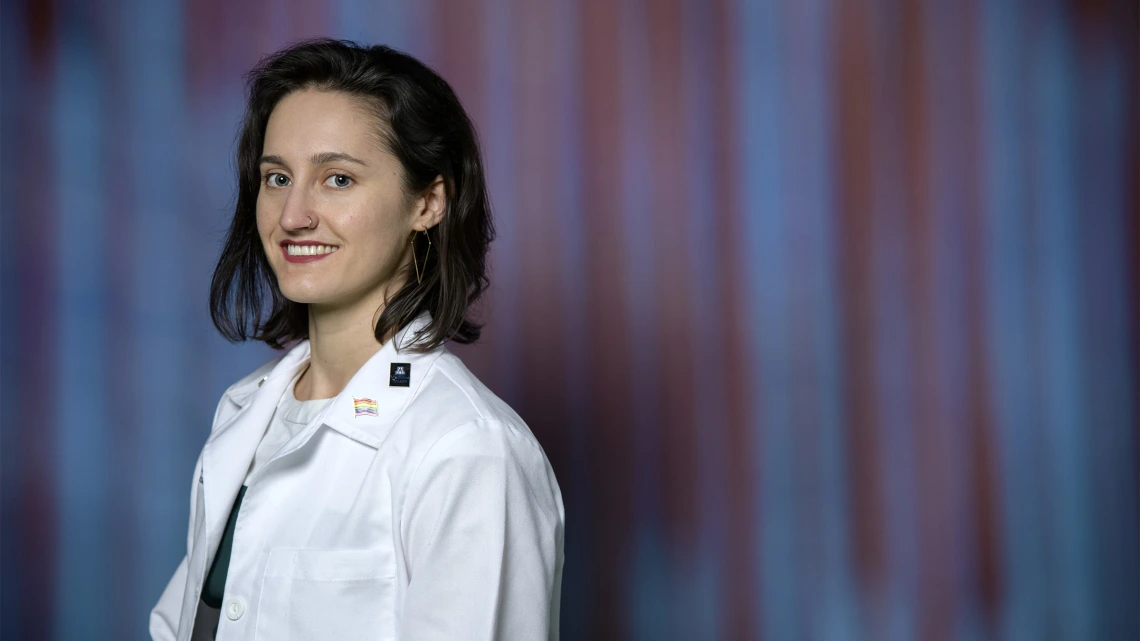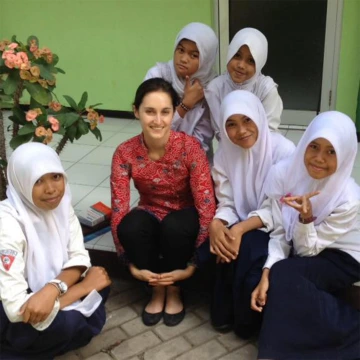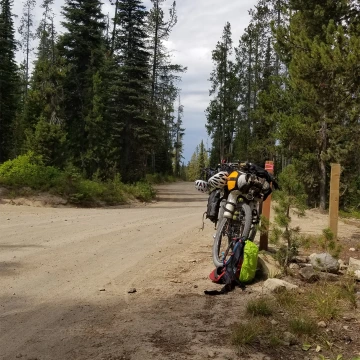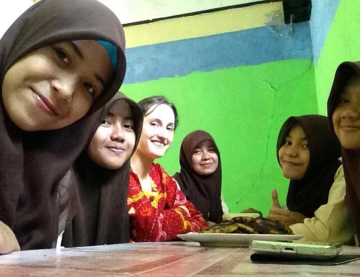Student Guest Column: From Rural Indonesia to Rural America, My Journey to Primary Care in Arizona
Julia Liatti, a first-year medical student, writes about the experiences that put her on the path to the University of Arizona College of Medicine – Tucson.

Liatti is a first-year medical student.
By Julia Liatti, first-year medical student, College of Medicine – Tucson.

Liatti with her 10th grade students during her first year teaching in Indonesia as a Peace Corps volunteer
On the outside looking in
After returning from Indonesia, I decided to mountain bike from Canada to Colorado, using mostly forest service roads through remote areas. My touring partner and I would ride for hours and not see anyone else. We would pass through a small town with no clinic or hospital and be told the closest place to find medical services was hours away by car. As I was riding along dirt ranch roads with no one but cows in sight for miles, it occurred to me how likely someone is to die on their way to help.

On a bike trip from Canada to Colorado, Liatti took backroads through a corner of Yellowstone National Park.
People in both settings had a distrust of “outsiders” coming in and telling them what to do. When I first arrived in the village, I was set on reforming the English curriculum to make English relevant to my students. In hindsight, I’m not surprised all of that flopped spectacularly. After I cooled my jets and sat back to watch the rhythm of life for a while, I realized my problem was assuming my priorities were the same as theirs. The only way I can learn what matters in any given place is to put aside my own ideas, eat some humble pie, and adjust my goals to be in line with what the community is actually interested in. Those skills will serve me well as a physician in an American underserved community, and the process of integrating myself in a community and being a neighbor and a friend, not just a doctor, will too.
From the country to the clinic
To be better informed about the day-to-day of practice, I decided to be a medical scribe, and was very fortunate to be placed with a primary care provider. He would sometimes make comments like, “You’ll never be glamorous as a primary care physician,” or “There is always job security, even if there aren’t three Ferraris,” but he never seemed bothered by that. He knew he was doing what he loved to do for people who needed it, and the way they welcomed him into their lives outside of clinic was a unique reward.
Every day, I watched him listen for longer than he spoke, deftly pick out what his patients most valued or worried about even if they didn’t explicitly verbalize it, and sustain years-long relationships with those he cared for. His medical assistant knew everyone’s names, where they were from, and what they liked. Patients felt valued and safe. Being part of that team wove together the science, humanism, practicality, and applicability of primary care. It was irresistible.
Primary care calls to me because the relationships you build with your patients invite their trust and confidence, allowing you to meet them at an accessible level.
Forging connections

“Some of my 11th graders were really curious about pancakes,” Liatti tells us, “so we made some after school for an English club project.”
It sounds terribly cheesy to say out loud — or it sounds like I went to Catholic school and learned about saints for eight years, which I did — but I want to feel like I can do something beneficial for other people, and that they want me to be there. That satisfaction is more motivating than any other I’ve experienced, and if I can make a career out of accomplishing that while helping other people live the best lives they can, I would be thrilled.

